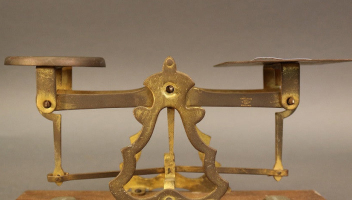
How We Think About the Project Manager Role
We see the software project manager role as both a service role and a buck-taking role.
Our project managers are here first and foremost to serve their projects, and by extension, to serve their teams and their clients. They are the point people who oversee all phases of a software project from start to completion, guiding it through discovery, design, development, and then ongoing maintenance.
Since our designers and developers are highly-skilled and responsible senior professionals, our project managers don’t need to play a “babysitting” role. Instead, they find out what their team needs to do their best work, and then they track that down and provide it. This entails coordinating meetings, soliciting feedback and/or requesting additional materials, breaking down all relevant communication into clear and organized tasks for their team, and following up as needed to make sure that all parties have a clear understanding of priorities, timelines, etc.
Our project managers must keep both the big-picture goals of the client and the smaller moving pieces of day-to-day operations in perspective. This means that at any given moment, they need to be thinking about what the next steps are in order to line up that work, while also participating in, for example, basic design review or testing a new release.
Our project managers are the point of contact for our clients and the go-to person for any issues a client has. There is an adage that there are no bad clients, only bad client management. While this is not true in all cases, our project managers always do what’s within their power to manage client relationships effectively. This means making sure the client has realistic expectations, including a clear understanding of timelines and requirements. This also means ferreting out ambiguities and asking clarifying questions to get everyone on the same page. Our goal is to anticipate potential concerns and proactively address them before they become full-blown issues.
At the end of the day, we believe that a project manager’s success has less to do with how much they inserted themselves into the project process and more to do with how strategically they did so in order to maximally serve their team, the client, and the outcome of the project.
More Articles

How to Maintain HIPAA Compliance in Software Development for Web and Mobile Apps →

The Benefits of Continuous Integration and Delivery in Software Development →

Frontend, Backend, Fullstack: What Do These Mean? →

How Much is My Software Project Going to Cost? →

Our Philosophy on Building Trust and Managing Client Expectations →

What We Look for in a Client →

Why We Engage Almost Exclusively on Retainers →

Why You Should Start with a Minimum Viable Product (MVP) →

Top 5 Common Mistakes to Avoid in Software Development →

Invisible Software Development Costs Caused by Technical Debt →

Comparing JavaScript Libraries: Vue.js, Angular, and React →

6 Questions You Should Ask Before Working with a Software Development Agency →

The Importance of a Single Source of Truth for Software Development Projects →

Why You Should Write a Specifications Document Before Starting Any Software Development Project →

